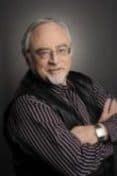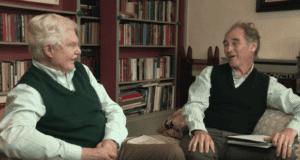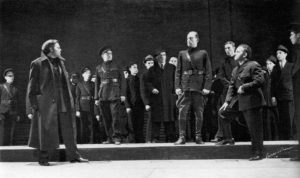International Theatre Journal Explores Authorship
Special Issue Edited by Professor Don Rubin

February 4, 2019 — “The Question That Won’t Go Away: Did the Man From Stratford Really Write the Plays?” is the theme of the latest issue of Critical Stages, the mainstream webjournal published by the Paris-based International Association of Theatre Critics. The special issue is edited by Don Rubin, Professor Emeritus of Theatre at York University in Toronto, Canada.
This is one of the most significant breakthroughs into a mainstream publication in the entire history of the Shakespeare authorship question. Critical Stages receives over 20,000 views a month and is read by theatre critics, professionals, and scholars in some 100 countries.
As Professor Rubin says in his introduction to the issue:
The authorship argument around the man from Stratford is, I believe, not only within the realm of possibility, but is already being taken seriously in many circles. Far from “crackpot” and far from a “conspiracy theory,” the authorship issue in Shakespeare studies is one that is literally leading thousands of scholars, critics and theatre artists, and hundreds of other researchers in fields such as history, law and medicine to question the traditional attribution of the name “Shakespeare” to a man who had no proven education, whose family was illiterate and who never actually claimed that he was the author.
Really?
Really.
So shouldn’t we be at least curious enough to look into it?
As Rubin explains, “the intent here is not really to put a specific name to the author, but rather to simply open the question about the possibility of pseudonymous writing in the case of the name William Shakespeare to a wider audience . . . in the theatre community.”
The Critical Stages special authorship issue includes the following articles:
-

Sir Derek Jacobi and Sir Mark Rylance discuss the “Declaration of Reasonable Doubt.” a fascinating transcript of a conversation between Mark Rylance and Derek Jacobi asking theatre people to at least consider the possibility of the name William Shakespeare being a pseudonym;
- a piece by Canadian actor Keir Cutler asking why in all his years of study for a Ph.D. in Theatre not one of his professors ever told him there was actually debate in this area;
- material from American scholar Diana Price setting a clear background for the whole issue with a chart comparing the literary life of the man from Stratford with others from this period;
- a piece by American scholar and producer Gary Goldstein offering new ways of producing the Shakespeare plays if the Earl of Oxford is the actual author;
-

Gary Goldstein cites the 1937 Orson Welles production of “Julius Caesar” in his article on staging Shakespeare. American attorney Tom Regnier’s article exploring the legal issues just beneath the surface in Hamlet;
- a documentation by actor-writer Hank Whittemore of the theatrical connections of the leading candidate in the authorship debate, Edward de Vere, the 17th Earl of Oxford;
- a personal statement by the Secretary-General of the International Association of Theatre Critics, Michael Vaïs, explaining how he himself came to the authorship question and why he decided recently to translate a book on candidate John Florio into French; and
- a recent BBC interview with Mark Rylance on this topic.
As Rubin says in parting: “Hopefully your mind will be open enough to consider some of the possibilities discussed.” Click here to read the Critical Stages special issue on the Shakespeare authorship question.
Membership dues cover only a fraction of our budget, including all our research, preservation and programming. Please support the SOF by making a gift today!
Blue Boar Tavern: Wassail Q&A
Tuesday Dec. 17, 8pm E / 5pm P
Sign up below for event invites!
